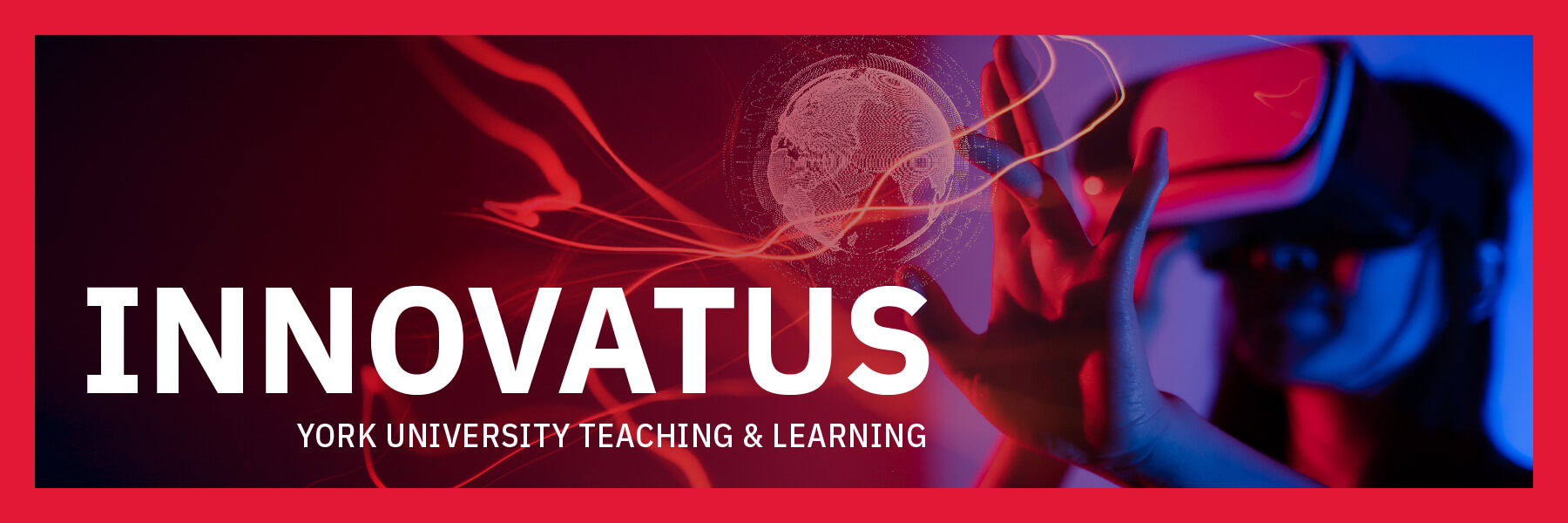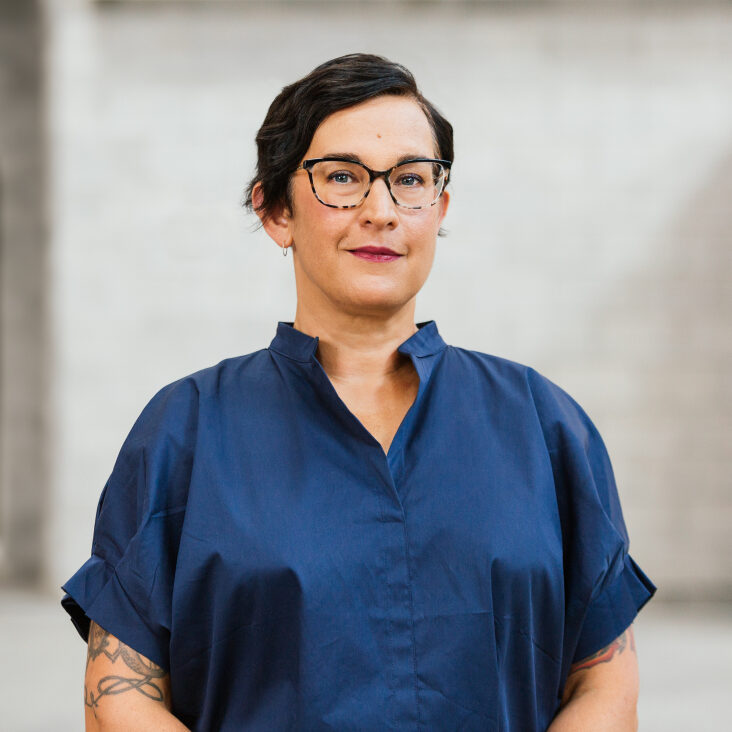
Welcome to the September 2024 edition of Innovatus, a special issue of YFile devoted to teaching and learning at York University. This first issue of the 2024-25 academic year highlights innovative, rewarding teaching and learning initiatives across York University campuses.
Innovatus is produced by the Office of the Vice-Provost, Teaching & Learning in partnership with the Communications & Public Affairs Division.
Welcome to the new academic year!

As we embark on another academic year at our diverse and dynamic university, I want to extend a warm welcome to our returning students, staff and faculty, as well as a special greeting to those who are joining us at York for the first time.
There is no question that we are living in a world and time that poses significant challenges and possibilities for post-secondary teaching and learning. Our sector continues to face significant transformation, including the technological revolution posed by generative artificial intelligence (AI) and the increasing student demand for a post-secondary education more deeply connected to the world outside the institution – two areas of change specifically addressed in the report released last year by York’s Task Force on the Future of Pedagogy.
With the increased use of generative AI among instructors and students, and its profound influence on post-secondary education as a whole, we have a unique opportunity to not only explore how this technology might enhance our pedagogical practices but to collaborate with our students to better understand its impact across the disciplines. However, the integration of AI in education also comes with challenges. It is crucial that we address ethical considerations – such as data privacy and the potential for bias in AI algorithms – when we use these tools, and explore their impacts with students. As we incorporate AI into our teaching and learning practices, we will need to work together to ensure it is used responsibly and equitably. To this end, resources to support the understanding and use of generative AI among faculty and students will be launched later this fall.
In addition to responding to technological advancements, we are eager to address the increasing demand among students for experiential learning and work-integrated learning (WIL) opportunities as essential components of our academic programs. Because these approaches bridge the gap between theoretical knowledge and community-based engagement and collaboration, they prepare students for post-graduate success and meaningful careers. WIL, in particular, enhances employability and cultivates a deeper understanding of the complexities of the fields we study and the contemporary workplace. In this way, WIL is critical to the achievement of the commitment to student access and success articulated in the University Academic Plan, and the goal of fostering lifelong success for each student who studies at our institution.
I feel confident that the York community, in all its diversity and complexity, is well poised to find creative and just ways of addressing these new frontiers together and fostering a vibrant learning community where everyone can thrive. I hope you will be inspired by the stories we are featuring in this first issue of Innovatus, all of which are pedagogical innovations supported by the Academic Innovation Fund.
The first story highlights a program emphasizing international collaboration that provides undergraduates with advanced research opportunities. Under the supervision of professors Sean Tulin and Laura Sagunski, five York University physics students participated in the prestigious Goethe Research Experience Program in Germany, focusing on dark matter research. This initiative is a testament to the students’ high academic and research capabilities, honed through York’s EXPLORE course, and highlights the importance of experiential learning and international collaboration in preparing students for successful research careers. In the process, it helps bridge the gap between classroom learning and real-world scientific inquiry.
Next, in a similar vein, we feature Professor Shital Desai’s Physical Computing II class, in which students apply physical computing skills to solve real-world rehabilitation challenges. Projects include a glove for volleyball players, a sock for foot injury rehab and the FlexiTrainer Pro for upper body exercises. The course emphasizes human-centred design and interdisciplinary collaboration, integrating practical, real-world problem-solving with academic knowledge. The result fosters innovation and interdisciplinary skills among students.
In the third article, we learn how Professor Mojgan Jadidi and her team at Lassonde are developing a virtual reality drone program to teach students how to fly drones in a gamified environment. The program immerses students in a virtual setting where they can practise flying drones without the risks associated with real-world training. This innovative approach to teaching leverages virtual reality and gamification to enhance student engagement and retention, potentially transforming traditional engineering education methods.
Finally, Professor Jodi Martin’s project helps psychology undergraduates map their careers by integrating career exploration from the first year and providing relevant experiences throughout their degree. The project aims to alleviate the uncertainty students face about their career paths and offers mentorship, work/study opportunities and panels with professionals. In an innovative and collaborative way, this initiative addresses the gap between academic knowledge and career readiness, ensuring students are better prepared for the workforce and can make informed decisions about their futures.
These stories are just a few of the many examples of innovation in teaching and learning across our campuses. I want to thank you all for your dedication, passion, and commitment to excellence in teaching and learning. I wish you all a successful and fulfilling year ahead.
Best wishes,
Chloë Brushwood Rose
Vice-Provost Teaching & Learning
Faculty, course directors and staff are invited to share their experiences in teaching, learning, internationalization and the student experience through the Innovatus story form.
In this issue:
York U physics students join prestigious research program in Europe
Five York U students were selected to participate in a prestigious international research program at the renowned Goethe University in Germany.
York U students apply physical computer skills to real-world challenges
A class run by Professor Shital Desai empowers students to create electronic devices with potential real-world impact.
York U professor promotes fun way to learn in engineering
A professor in the Lassonde School of Engineering is advancing more fun ways to learn through a program that teaches undergraduate students how to fly drones through virtual reality.
York U psychology undergrads get help mapping career paths
Psychology Professor Jodi Martin is pursuing a program that will help undergraduate psychology students – and maybe, eventually, students in other fields – better understand their post-graduation career options.
